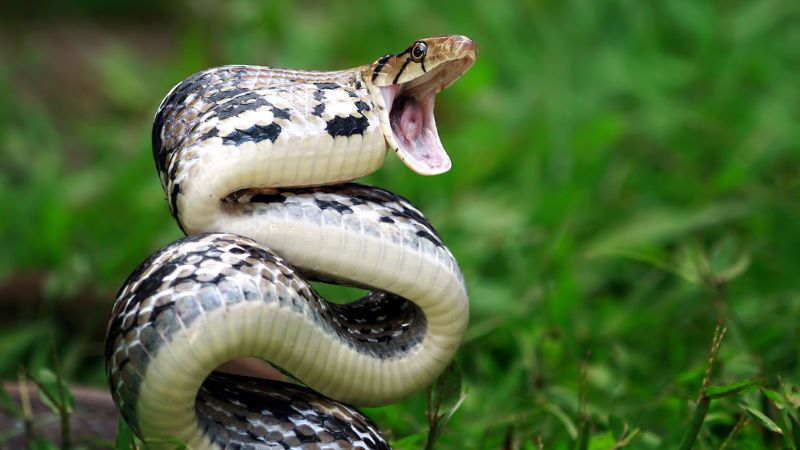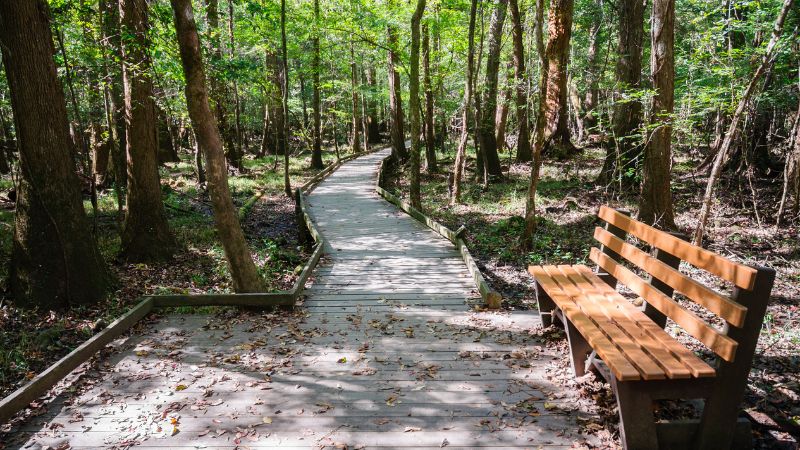Snakes are fascinating creatures that evoke both fear and awe. While many snakes are harmless, some species are highly venomous and pose a serious threat to humans. Here, we explore the top 8 deadliest snakes in the wild, highlighting their characteristics, habitats, and the dangers they pose.
1. Inland Taipan (Oxyuranus microlepidotus)
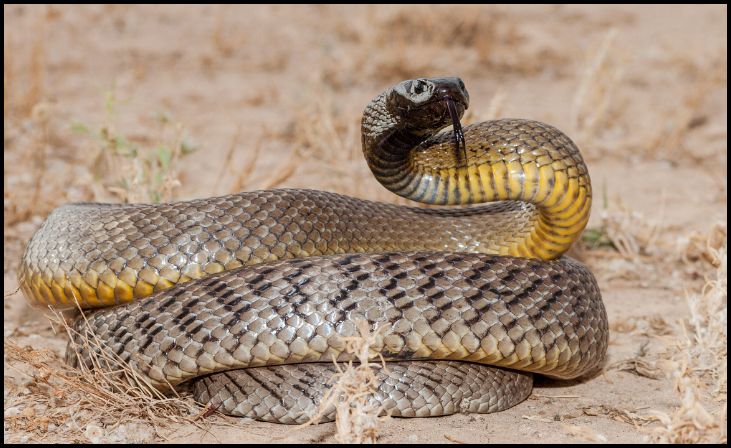
The Inland Taipan, also known as the “fierce snake,” is considered the most venomous snake in the world. Found in the arid regions of central Australia, this snake’s venom is highly potent, capable of killing an adult human in just 30 minutes. Despite its toxicity, the Inland Taipan is shy and rarely encountered by humans.
2. Belcher’s Sea Snake (Hydrophis belcheri)
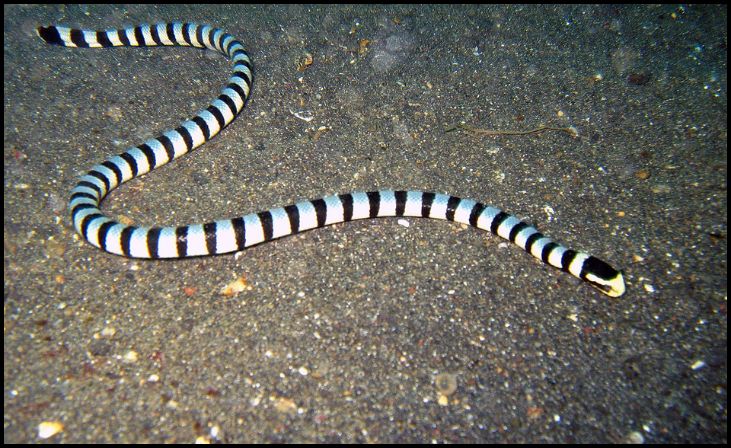
Belcher’s Sea Snake, found in the tropical waters of the Indian and Pacific Oceans, possesses venom that is among the most toxic of all snakes. Fortunately, encounters with humans are rare as these snakes spend most of their time in deep waters.
3. Coastal Taipan (Oxyuranus scutellatus)
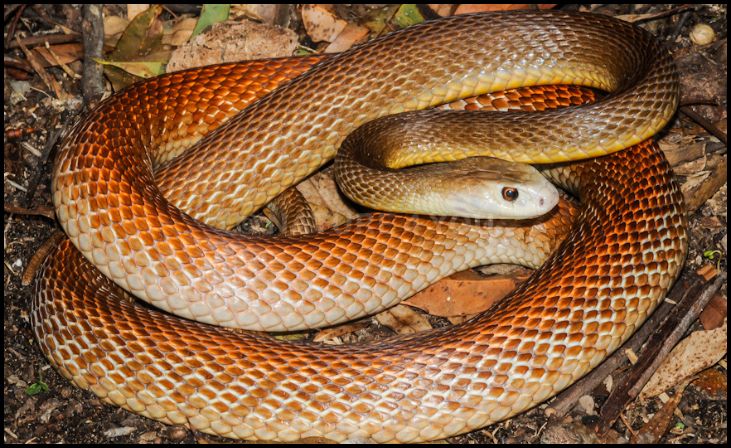
The Coastal Taipan, native to northeastern Australia and New Guinea, is another highly venomous snake. Its venom is potent enough to kill a human in under an hour, making it one of the deadliest snakes in its range. However, like the Inland Taipan, it is reclusive and tends to avoid human contact.
4. Tiger Snake (Notechis scutatus)
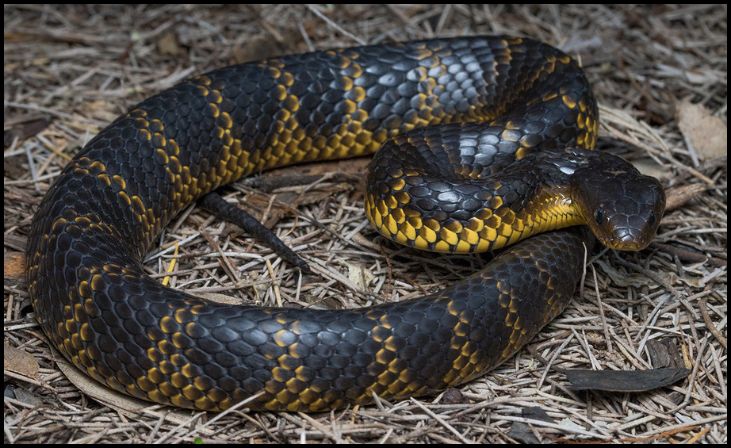
The Tiger Snake, found in southern regions of Australia, is known for its aggressive behavior when threatened. Its venom is highly neurotoxic and coagulant, causing paralysis and internal bleeding. Despite this, fatalities are rare due to the availability of antivenom.
5. Black Mamba (Dendroaspis polylepis)
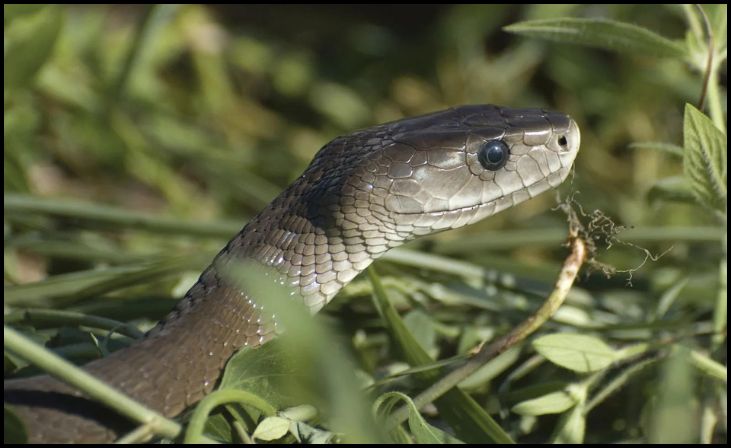
The Black Mamba, found in parts of sub-Saharan Africa, is known for its speed and aggression. It is one of the fastest snakes in the world and can deliver multiple lethal bites in a single attack. Its venom is highly toxic, causing paralysis and death if not treated promptly.
6. Eastern Brown Snake (Pseudonaja textilis)
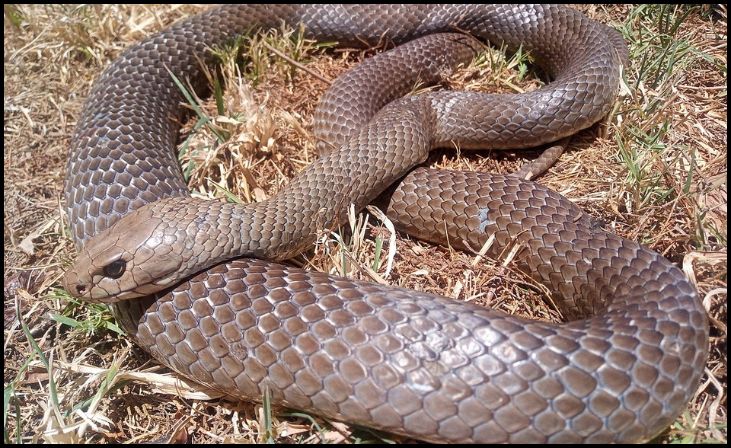
The Eastern Brown Snake, native to Australia, is responsible for the majority of snakebite deaths in the country. Its venom is potent and causes progressive paralysis, leading to respiratory failure if left untreated. Despite its lethality, the snake is relatively shy and will usually flee when confronted.
7. Saw-scaled Viper (Echis carinatus)
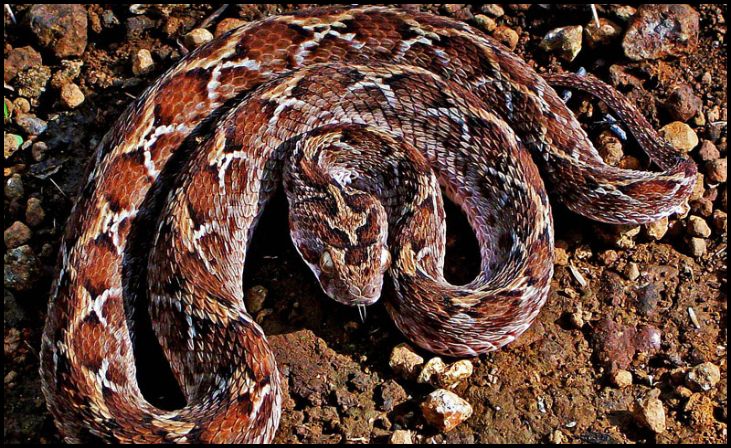
The Saw-scaled Viper, found in parts of Africa, the Middle East, and the Indian subcontinent, is known for its aggressive behavior and the loud, saw-like sound it makes when threatened. Its venom is highly hemotoxic, causing severe pain, swelling, and tissue damage.
8. Common Death Adder (Acanthophis antarcticus)
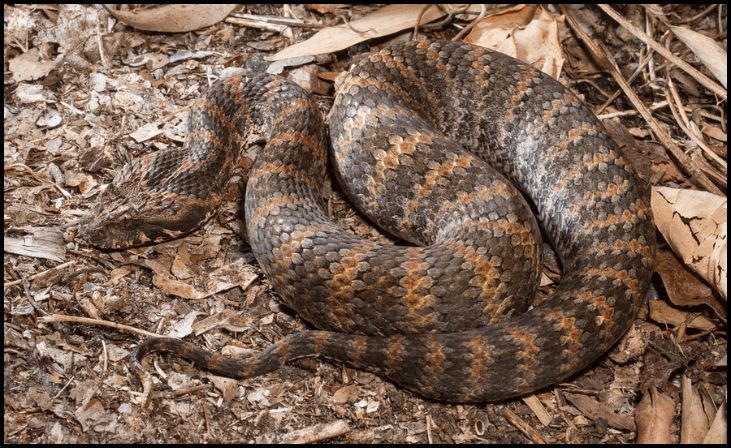
Despite its name, the Common Death Adder is actually a type of viper found in Australia and New Guinea. It is known for its short, stocky appearance and its ability to remain motionless for long periods, relying on camouflage to ambush its prey. Its venom is highly potent, causing paralysis and respiratory failure.
In conclusion, while these snakes are among the deadliest in the wild, it’s important to remember that they play a vital role in their ecosystems. Encounters with humans are rare, and most snakebites occur when humans inadvertently provoke or disturb the snake. Understanding and respecting these creatures can help us coexist safely in their natural habitats.

